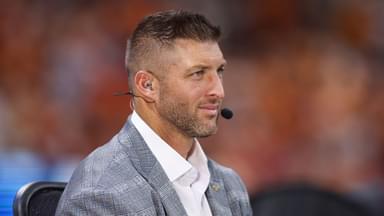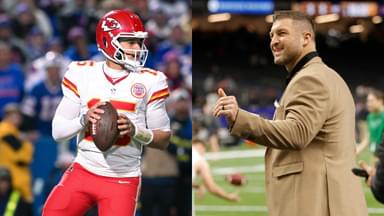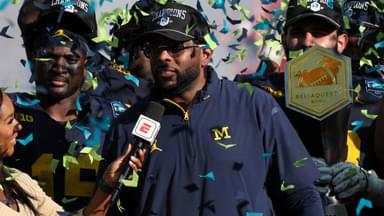Urban Meyer’s Florida Gators of the late 2000s were one of the great college football dynasties in history. From 2006 to 2009, they went 48–7, won two national championships (2006 and 2008), and reached a third in 2009, which they lost to Alabama in a rematch of the previous year’s final. Even the Florida men’s basketball team won titles in 2006 and 2007.
Advertisement
And despite all of that raucous success, the biggest character in the Swamp during that time, Meyer says, was Bible-thumping, pregame-praying QB Tim Tebow. It’s no coincidence that those successful years coincided with his four-year stay in Gainesville from 2006 to 2009.
He was mostly used for his running as a freshman during the first title run, took the nation by storm with a Heisman Trophy season in 2007, and came back to win another title in 2008, also earning the Maxwell and title game MVP awards. Meyer obviously loved his quarterback, as the two were briefly reunited in 2021.
When Meyer took the Jacksonville Jaguars head coaching job, he gave Tebow another shot as a tight end after six years out of the league. Unfortunately, he was cut before the end of the preseason. However, that didn’t dampen Meyer’s appreciation for Tebow’s unmatched heart and work ethic.
“He had everything going. He had his faith, it wasn’t like he was in survival mode, but he, as I look back, he might’ve loved the game as much as anybody I coached; he would spend 12 or more hours a day on the game,” Meyer said about his former QB.
“Whether it be training, whether it be taking care of his body, studying film, and he loved practice man… We would have a ball coaching that guy… You coach guys like that, the two hours go by like this (Snaps).”
View this post on Instagram
Tebow really needed that love of the game and that determination, because he was not built to be a prototypical NFL quarterback. Most teams believed he wouldn’t be any kind of quarterback because of his lack of accuracy and strange lefty throwing motion. However, the Denver Broncos took a chance on him with the No. 25 overall pick in the 2010 NFL Draft.
Tim Tebow went on to a topsy-turvy NFL career
Tebow didn’t play much as a rookie, but in his second year in 2011, he replaced Kyle Orton after Denver’s 1-3 start. Tebow would go on to tie for the league lead that year with five fourth-quarter comeback wins, which helped push the Broncos into the postseason. His first came in his first start that season, as he erased a 15-0 deficit with just seven minutes left and set Denver up for a game-winning field goal in overtime.
From Weeks 11-14, he engineered four straight fourth-quarter comebacks. Was it a coincidence that the streak came right before Christmas? Was his Lord and Savior coming to his aid every Sunday? SNL even did a skit to that effect during the season. His good fortune continued in the playoffs, where he completed an 80-yard TD pass on the first play of overtime to upset the Pittsburgh Steelers.
Unfortunately, Peyton Manning became available the very next offseason, and John Elway and company pounced at Tebow’s expense. Tebow played a season with the New York Jets in 2012 before finishing out with a few practice-squad stints. He is now a college football pundit for the SEC Network.








